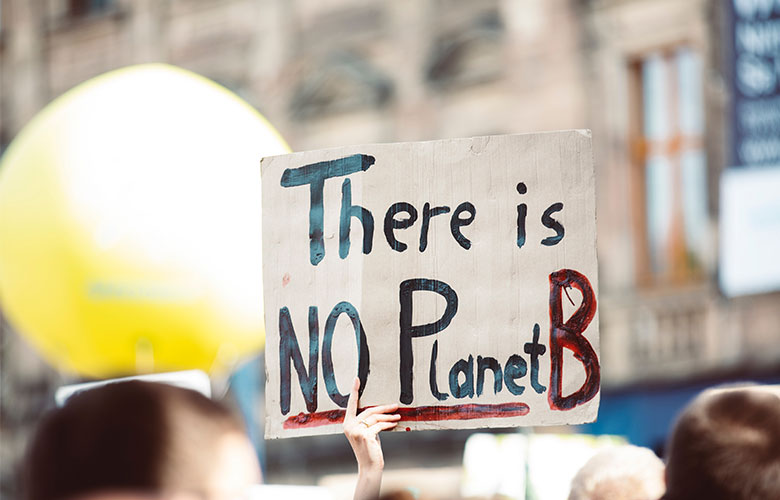Everything But What Matters
By Auden Schendler

A hot air balloon filled with carbon dioxide would hold about five tons of the gas. If you floated 7.2 billion of them into the air in a global version of a state fair, the pastel colors and wicker baskets would block out the sun—and they would represent just one year’s worth of human emissions. That pretty visual belies the crisis we now all recognize, as Australia burns and Central Park in January invites T-shirts and tank tops. Business is starting to understand and combat the problem. But unfortunately, it is doing so in ways specifically designed to fail.
In Denver, at Outdoor + Snow Show, a coalition of businesses under the banner #ClimateActionCorps committed to ambitious carbon reduction efforts. They are not alone. In the preceding weeks, Microsoft, Salesforce, Starbucks, and other corporations did the same. Others will surely follow. Each of these firms is lauded in the press and praised by environmental pundits. And for good reason: They are stepping out on a limb even by recognizing the problem— even more so by bucking traditional economic theory that the role of business is to make money, period.
There is a problem with all this, however. Climate change is a huge, global-systems crisis. And corporations wield enormous power over that system not through their own carbon reductions but through policy. Indeed, it was because of fossil fuel money and influence, and its capture of governance worldwide, that modern society could best be described as “Carbon Man.” Most every action we take is tied to another puff of emissions, another hot air balloon above us. Businesses could use their lobbyists, media presence, CEO influence, and political gravitas to bend politics back toward a livable planet. But with very few exceptions (Burton, Unilever/Ben & Jerry’s, Patagonia), none has done so. No CEO statement. No media comments. If they act at all, it’s behind closed doors or on sign-on lists buried among other businesses. Nothing about this enables the movement we need.
Instead, like Microsoft and Starbucks or far too many in the outdoor industry, they announce an admirable commitment to operational greening i.e., reducing their carbon footprint—but no political action. They avoid any effort to participate in meaningful movement building. Why? At almost no risk or cost, Microsoft could have said: “We’re greening our operations and our supply chain. We’re also mobilizing our trade groups, which will be pushing hard on policymakers. Our lobbyists will be working on climate as a priority, even above and beyond trade. And our CEO will make a statementon climate whenever they go on the news. By the way, our Wall Street Journal op-ed is on the way.”
But Microsoft did not say that. Starbucks did not. Nobody did. It’s baffling. Not only did they miss taking the one action that would actually make a difference, but they simultaneously gave credence to government inaction. After all, good citizens, look: Corporations will save us! They are policing themselves! But of course, they will not. And the last 30 years of emissions growth is ample evidence of that.
How do we know these actions are not enough? Recent research by The Climate Accountability Institute showed that 63% of the carbon dioxide and methane emitted between 1751 and 2010 came from just 90 entities. These entities are coal, gas, and oil companies and cement manufacturers. Many are still around. And with plenty of takers for their products, none of them will be reducing their emissions anytime soon, unless governments intervene. Meanwhile, climate “leaders” like Microsoft ensure ongoing carbon pollution by continuing to fund Mitch McConnell, the Senate’s key firewall against climate legislation.
This is all incredibly discouraging. Society has the technology, the policy tools, and the know-how to solve the climate problem forgood. All we need is the political will, something that could be mustered if business merely thought differently. To hold the solution to this great civilizational crisis in our hands and to not act in a way that is meaningful—that must be the saddest thing we know